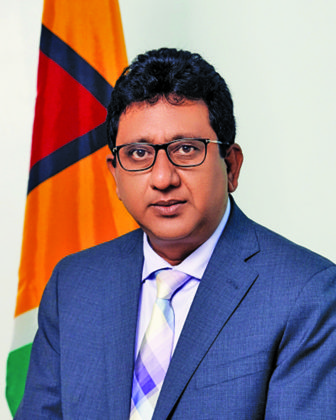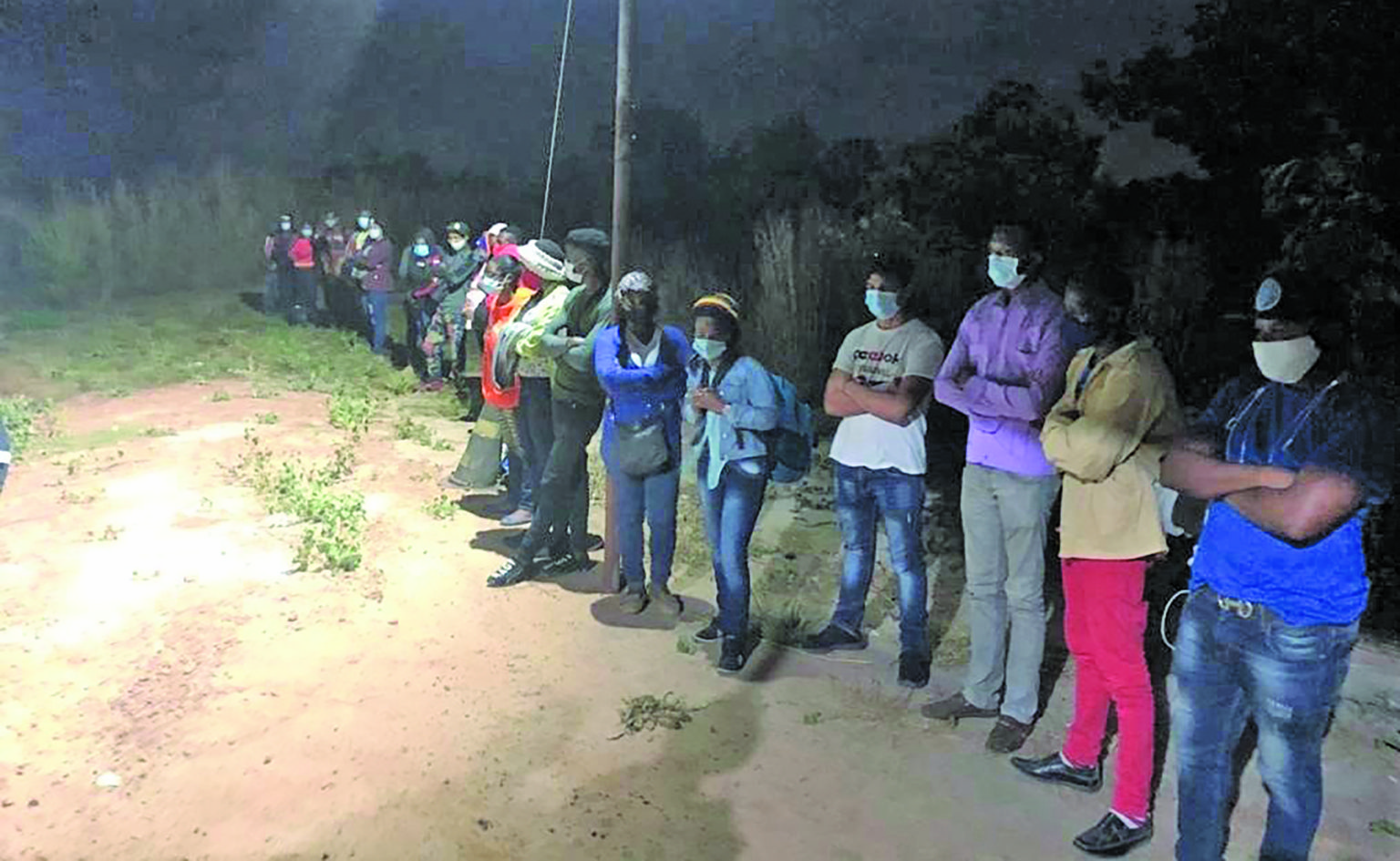No exit records for over 38,000 Haitians in Guyana between 2015-2020
…Govt seeks restrictions to curb human trafficking, smuggling
Faced with growing concerns of human trafficking and the more than 30,000 Haitian nationals who entered Guyana over the past few years but cannot be accounted for, the Government of Guyana has opted to implement visa restrictions on Cubans and Haitians seeking to enter Guyana.

Attorney General Anil Nandlall, SC
According to data seen by this publication, as many as 9,239 Haitians entered Guyana in 2020. However, only 717 are documented by the authorities as leaving. For 2021 so far, 1378 Haitians were documented entering Guyana, but only 165 were shown to have left.
In 2019, there was a whopping total of 20,261 arrivals of Haitian nationals in Guyana. However, only 1,697 were recorded as leaving Guyana, a difference of 18,564. In fact, a cumulative total of 38,187 Haitian nationals entered Guyana from 2015 to 2021, but were never recorded as having left.
Restrictions
During an edition of ‘Issues in the News’, Attorney General Senior Counsel Anil Nandlall announced the impending implementation of visa restrictions for Haitians and Cubans.
According to Nandlall, the Government’s sole motivation is to curb human smuggling.

The Haitians who were intercepted in Guyana last year (File photo)
“You know that we have a problem in Guyana which we have been grappling with, and it is the influx of illegal aliens into Guyana and the influx of persons from various nationalities into Guyana. It has long been suspected that they are part of a human smuggling ring of international stature. They enter Guyana and they do not remain here. Very few leave through the channels they came,” he disclosed.
According to Nandlall, the human smuggling ring involves Haitians, Venezuelans and Cubans. He referred to last week’s discovery of 10 Haitian teens, including one who was pregnant, who were found in a hotel at Skeldon, East Berbice without any passport or ID.
“These are the classic trappings of a human smuggling ring, where you have young women, young men and people deposit them. They come through the backtrack route illegally, and the person just disappeared with their passport. And they are left in a hotel room, to become a charge on the state.
“Well, there are laws to govern these situations…we have to tackle this issue once and for all. Only three countries in the Caribbean are visa free for Haitians. All the other Caribbean countries had to put in place visa requirements. Guyana will be moving in that direction,” Nandlall said.
According to Nandlall, the 10 teens who were discovered last week are being looked after at the Hugo Chavez Centre on the West Coast of Berbice while Police conduct their investigations.
The AG has also lambasted A Partnership for National Unity/Alliance For Change (APNU/AFC) personalities for twisting it into an issue of race.
“The last time we arrested and detained them, they went to the courts. And obviously, every time you try to do something, the APNU/AFC plays the race card. So, it’s not about protecting Guyana’s borders, it’s not about enforcing Guyana’s laws, it’s not about ensuring that our country is not being used as a trans-shipment point; it’s about (race). That’s the only card they can play on the table.”
In November 2020, Police in E Division (Linden-Kwakwani) had arrested 26 Haitians who had reportedly entered Guyana illegally. They were reportedly intercepted in two minibuses at Mabura Trail, Region 10 (Upper Demerara-Berbice).
It was reported that the Haitians were detained after it was discovered that they had entered the country illegally via Suriname. Police related that the foreign nationals were enroute to neighbouring Brazil at the time of interception.
The Haitians were placed in protective custody at the Hugo Chávez Centre, and Chief Magistrate Sherdel Issacs-Marcus had granted an order to deport them after being approached by the Immigration Office.
However, the Association of Haitian Nationals in Guyana successfully approached Acting Chief Justice Roxane George on December 3, to block the deportation until the constitutionality of their detention came up for the hearing of arguments on December 18.
Before the hearing could come up, however, the 26 Haitians who were detained and subsequently released by local authorities pending the determination of court proceedings disappeared from their city dwelling.
This publication had visited the guest house, where it was confirmed that the 26 Haitians, including children, were no longer there. (G3)
